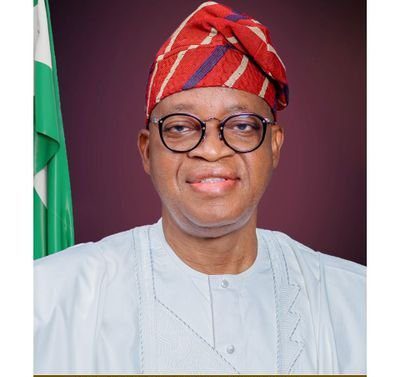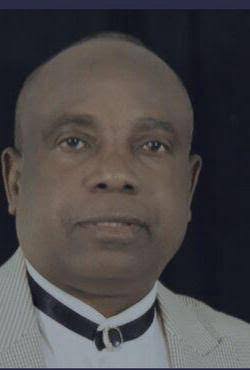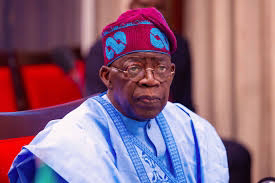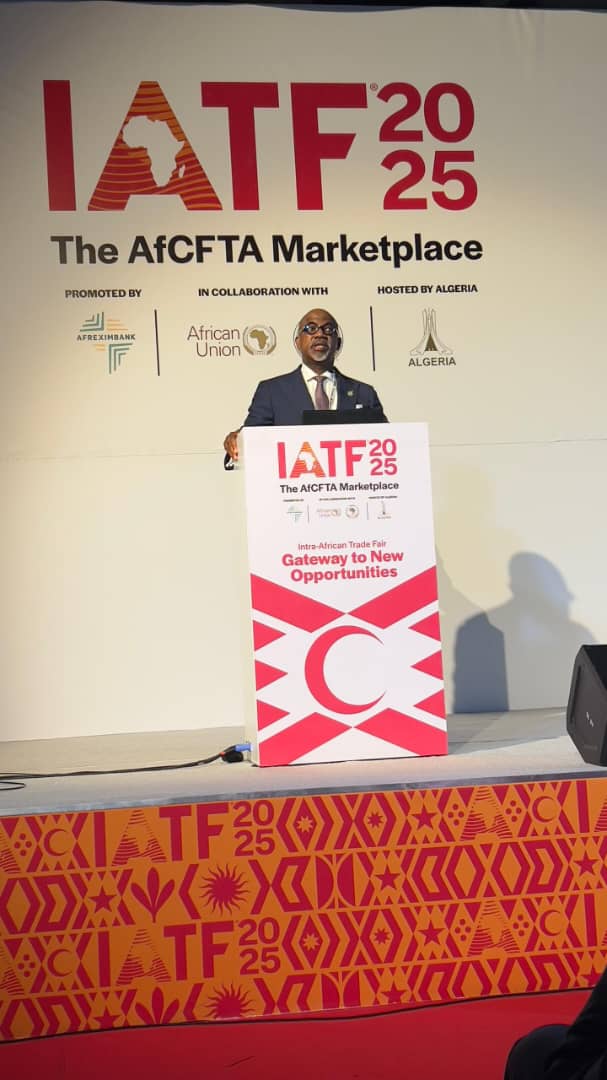Lagos, Nigeria – September 2025
The Transportation Correspondents Association of Nigeria (TCAN) is gearing up to host its second annual Transportation Summit on Wednesday, September 24, 2025, at the Radisson Hotel, Ikeja, Lagos. This high-profile event will bring together key figures in Nigeria’s transportation sector, with the Minister of Transportation, Senator Sa’idu Ahmed Alkali, and the Minister of Marine and Blue Economy, Mr. Adegboyega Oyetola, confirmed as special guests of honour. The summit, themed “Driving the Transport Logistics Value Chains for Economic Growth,” aims to foster dialogue, collaboration, and policy innovation to address the critical challenges facing Nigeria’s transportation and logistics sectors while unlocking their potential to drive economic development.
The announcement was made by TCAN Chairman, Mr. Tola Adenubi, during a press briefing in Lagos. Adenubi emphasized the summit’s role as a pivotal platform for stakeholders to discuss pressing issues, share insights, and propose actionable solutions to enhance the efficiency and sustainability of Nigeria’s transportation ecosystem. Following the success of the inaugural summit in 2024, this year’s event promises to build on that momentum, bringing together regulators, industry players, policymakers, and media to shape the future of transportation in Nigeria.
Background and Significance of the TCAN Summit
Nigeria’s transportation sector is a critical pillar of the country’s economy, facilitating the movement of goods, services, and people across its vast landscape. With a population exceeding 200 million and a rapidly growing economy, the demand for efficient, safe, and sustainable transportation systems has never been greater. However, the sector faces numerous challenges, including inadequate infrastructure, regulatory bottlenecks, high logistics costs, and inefficiencies in cargo evacuation from ports. These issues have hindered Nigeria’s ability to maximize the economic potential of its transportation and logistics value chains.
The TCAN Summit was established to address these challenges by providing a platform for stakeholders to engage in constructive dialogue and develop strategies to drive progress. The inaugural summit in 2024, which featured former Minister of Transportation Rt. Hon. Rotimi Amaechi as the guest speaker, was widely praised for its impact in fostering collaboration and raising awareness about critical issues in the sector. Building on this foundation, the 2025 summit aims to delve deeper into the theme of logistics and economic growth, with a focus on intermodal transportation, port efficiency, and the integration of technology to enhance logistics operations.
The choice of Lagos as the venue for the summit is strategic. As Nigeria’s commercial capital and home to major ports such as Apapa and Tin Can Island, Lagos is at the heart of the country’s transportation and logistics activities. The city’s ports handle over 70% of Nigeria’s maritime trade, making them critical to the nation’s economy. However, persistent congestion, delays in cargo clearance, and inadequate rail and road connectivity have long plagued the port system, contributing to high costs and inefficiencies. The summit’s focus on logistics value chains underscores the urgency of addressing these challenges to boost Nigeria’s competitiveness in global trade.
Key Participants and Their Roles
The presence of Ministers Alkali and Oyetola as special guests of honour underscores the summit’s importance and the government’s commitment to addressing transportation challenges. Senator Sa’idu Ahmed Alkali, the Minister of Transportation, brings a wealth of experience to the event. Since his appointment, Alkali has prioritized the modernization of Nigeria’s railway system, the rehabilitation of key road networks, and the enhancement of intermodal connectivity. His participation in the summit is expected to provide insights into the government’s plans to improve transportation infrastructure and streamline logistics operations.
Mr. Adegboyega Oyetola, the Minister of Marine and Blue Economy, is another key figure at the summit. Oyetola, a former governor of Osun State, has been instrumental in driving Nigeria’s blue economy agenda, with a focus on maritime decarbonization, port modernization, and the development of inland waterways. His leadership in initiatives such as the African Strategic Summit on Shipping Decarbonisation in March 2025 has positioned Nigeria as a leader in sustainable maritime practices in Africa. At the TCAN Summit, Oyetola is expected to highlight the role of the marine sector in supporting Nigeria’s logistics value chains and fostering economic growth.
The keynote address will be delivered by Dr. Fidet Okhiria, the Managing Director of the Nigerian Railway Corporation (NRC). Dr. Okhiria’s expertise in railway management and his efforts to expand Nigeria’s rail network make him a fitting choice to set the tone for the summit. Other prominent stakeholders, including representatives from the Nigerian Ports Authority (NPA), the Nigerian Maritime Administration and Safety Agency (NIMASA), and private sector players in the transportation and logistics industry, are also expected to participate, ensuring a diverse range of perspectives.
Objectives of the Summit
The 2025 TCAN Summit aims to achieve several key objectives, as outlined by Chairman Tola Adenubi. These include:
Policy Development: The summit seeks to facilitate the development of effective policies to address systemic challenges in the transportation sector. By bringing together policymakers, regulators, and industry experts, the event aims to identify actionable solutions to improve efficiency and reduce costs.
Stakeholder Collaboration: The summit provides a platform for stakeholders to share ideas, showcase innovations, and forge partnerships. This collaborative approach is critical to addressing the multifaceted challenges facing Nigeria’s transportation ecosystem.
Focus on Logistics Value Chains: The theme of the summit emphasizes the importance of optimizing logistics value chains to drive economic growth. This includes improving cargo evacuation from ports, enhancing intermodal connectivity, and leveraging technology to streamline operations.
Highlighting Industry Achievements: The summit offers organizations and companies in the transportation sector an opportunity to showcase their contributions to the nation’s logistics chain development. This visibility can attract investment and foster public-private partnerships.
Addressing Safety and Security: The safe and secure movement of goods and people across Nigeria’s waterways, roads, railways, and airways is a key focus of the summit. Discussions will explore strategies to reduce accidents, combat piracy, and enhance security in the transportation sector.
The State of Nigeria’s Transportation Sector
Nigeria’s transportation sector is a complex ecosystem comprising road, rail, maritime, and aviation components. Each mode of transportation faces unique challenges that impact the overall efficiency of the logistics value chain. For instance, the road network, which accounts for over 80% of freight and passenger transport in Nigeria, is plagued by poor maintenance, potholes, and congestion. This has led to high transportation costs, which contribute to the rising prices of goods and services.
The railway sector, while showing promise with projects like the Lagos-Ibadan and Abuja-Kaduna rail lines, remains underdeveloped. Limited coverage, aging infrastructure, and operational inefficiencies have hindered the sector’s ability to serve as a viable alternative to road transport. The government’s efforts to expand the rail network, including the planned Lagos-Calabar coastal railway, are steps in the right direction, but significant investment is needed to achieve transformative impact.
The maritime sector, a key focus of Minister Oyetola’s agenda, is critical to Nigeria’s economy due to its role in international trade. However, challenges such as port congestion, corruption, and inefficient cargo clearance processes have made Nigerian ports less competitive compared to their counterparts in West Africa. The government’s push for port automation and the development of deep-sea ports, such as the Lekki Deep Sea Port, aims to address these issues, but progress has been slow.
The aviation sector, while relatively advanced, faces challenges related to high operating costs, regulatory inconsistencies, and infrastructure deficits. The recent grounding of several domestic airlines due to financial difficulties has further highlighted the need for reforms to ensure the sector’s sustainability.
The Role of Logistics in Economic Growth
The theme of the 2025 TCAN Summit, “Driving the Transport Logistics Value Chains for Economic Growth,” underscores the critical link between transportation and economic development. Efficient logistics systems are essential for reducing the cost of doing business, improving supply chain reliability, and enhancing Nigeria’s competitiveness in global markets. According to a 2024 report by the World Bank, logistics costs in Nigeria account for up to 16-20% of the country’s GDP, significantly higher than in developed economies where such costs are typically below 10%. This high cost is a major barrier to economic growth, particularly for small and medium-sized enterprises (SMEs) that rely on affordable transportation to reach markets.
The summit’s focus on logistics value chains is timely, given Nigeria’s ambition to diversify its economy away from oil dependency. Sectors such as agriculture, manufacturing, and e-commerce, which are critical to economic diversification, depend heavily on efficient transportation and logistics systems. For example, the timely delivery of agricultural produce from rural farms to urban markets requires robust road and rail networks, as well as efficient port operations for exports. Similarly, the growth of e-commerce, driven by companies like Jumia and Konga, relies on reliable last-mile delivery systems, which are currently hampered by logistical challenges.
Stakeholder Perspectives
The TCAN Summit has garnered significant interest from stakeholders across the transportation sector. The Nigerian Ports Authority (NPA) has expressed its commitment to supporting the summit, with its Managing Director, Mohammed Bello Koko, expected to address issues related to port efficiency and modernization. The NPA’s recent efforts to implement electronic cargo clearance systems and reduce port congestion will likely be a focal point of discussions.
The Nigerian Maritime Administration and Safety Agency (NIMASA), under the leadership of Dr. Dayo Mobereola, has also endorsed the summit. NIMASA’s focus on maritime safety, security, and decarbonization aligns with the summit’s objectives, particularly in the context of Nigeria’s role in global shipping. Dr. Mobereola’s participation is expected to shed light on the agency’s initiatives to combat piracy in the Gulf of Guinea and promote sustainable maritime practices.
Private sector players, including logistics companies, shipping lines, and transport unions, have welcomed the summit as an opportunity to highlight their contributions and challenges. The National Union of Road Transport Workers (NURTW) and the Maritime Workers Union of Nigeria (MWUN) have called for greater government support to address issues such as high fuel costs, poor road conditions, and regulatory bottlenecks.
Civil society organizations and advocacy groups have also emphasized the need for the summit to address the social and environmental impacts of transportation. Issues such as road accidents, which claim thousands of lives annually in Nigeria, and the environmental footprint of the transportation sector, particularly in maritime and aviation, are expected to feature prominently in discussions.
Challenges and Opportunities
The TCAN Summit comes at a critical juncture for Nigeria’s transportation sector, which faces both challenges and opportunities. On one hand, the sector is grappling with systemic issues such as underfunding, corruption, and policy inconsistencies. For example, the House of Representatives’ investigation into alleged fraudulent concessions of seaport infrastructure in 2024 highlighted the need for greater transparency and accountability in the sector. Ministers Alkali and Oyetola were summoned to address these allegations, underscoring the complexities of managing Nigeria’s transportation assets.
On the other hand, there are significant opportunities for growth and innovation. The government’s investment in rail infrastructure, the development of new ports, and the adoption of technology-driven solutions such as e-clearance systems and smart logistics platforms offer hope for a more efficient and sustainable transportation sector. The summit provides a platform to explore these opportunities and develop strategies to overcome existing challenges.
The Path Forward
To achieve the objectives of the 2025 TCAN Summit, stakeholders must prioritize collaboration, innovation, and policy implementation. Key recommendations include:
Investment in Infrastructure: The government must increase funding for transportation infrastructure, particularly in rail and port development, to reduce reliance on roads and improve connectivity.
Policy Reforms: Streamlining regulatory processes, addressing corruption, and ensuring transparency in concessions and contracts will enhance the sector’s efficiency and attractiveness to investors.
Technology Adoption: The integration of technology, such as automated cargo tracking systems and digital payment platforms, can reduce delays and improve transparency in logistics operations.
Sustainability Initiatives: The transportation sector must align with global sustainability goals, including decarbonization efforts in maritime and aviation. Minister Oyetola’s leadership in this area provides a foundation for progress.
Public-Private Partnerships: Encouraging collaboration between the government and private sector players can bridge funding gaps and drive innovation in the transportation sector.
Conclusion
The 2025 TCAN Transportation Summit represents a critical opportunity to address the challenges facing Nigeria’s transportation and logistics sectors while unlocking their potential to drive economic growth. With Ministers Alkali and Oyetola at the forefront, alongside other key stakeholders, the summit promises to deliver actionable insights and foster collaboration among industry players. By focusing on policy development, stakeholder engagement, and innovation, the summit can pave the way for a more efficient, sustainable, and inclusive transportation ecosystem in Nigeria. As the country strives to diversify its economy and compete in global markets, events like the TCAN Summit are essential for shaping a brighter future for the transportation sector and the nation as a whole.








